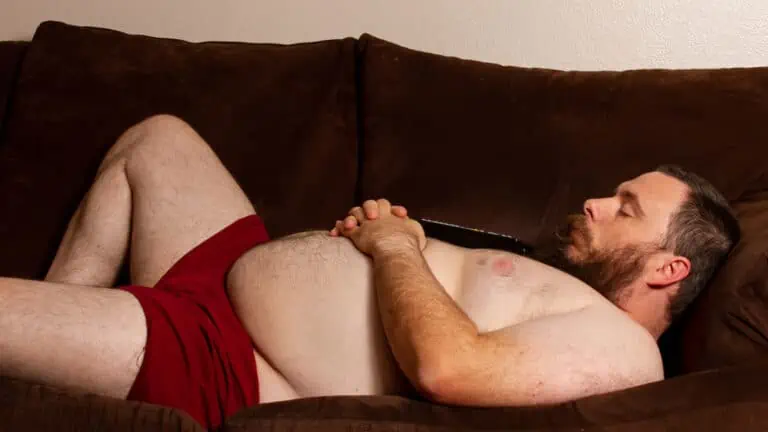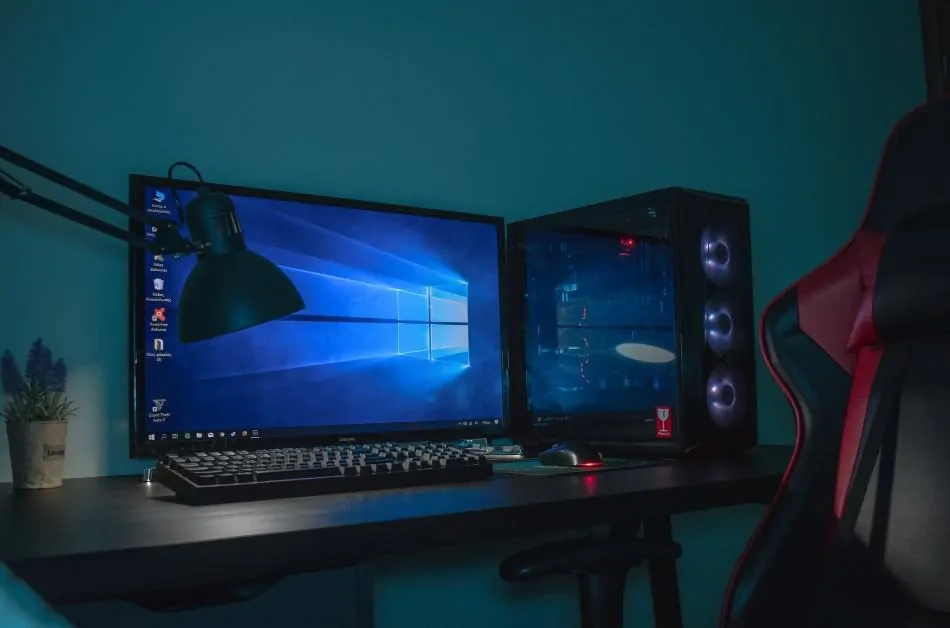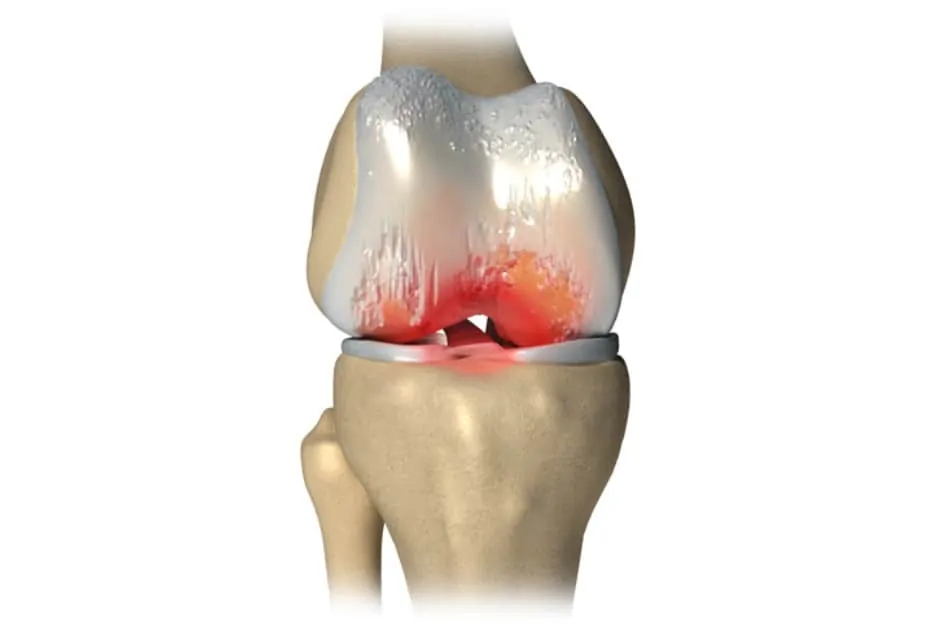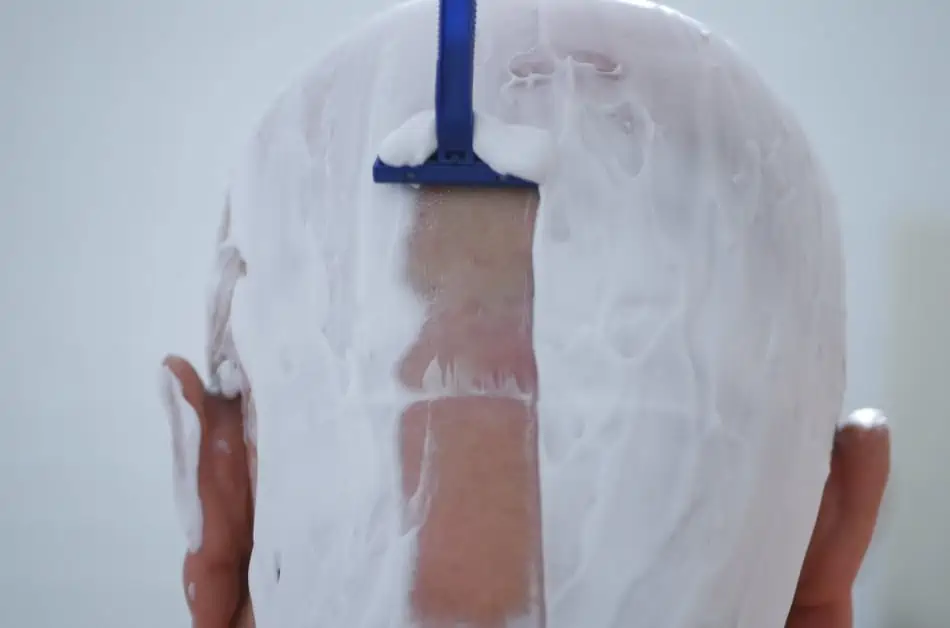On multiple occasions over the course of my life, I have been accused of snoring quite loudly. Obviously, I can’t confirm or deny that since I was asleep at the time but I trust the people who have reported it.
I’ve always wondered if being fat has anything to do with my snoring. Do fat people snore more than non-fat people? It’s a very interesting question that I recently sat down and learned more about and I’d like to share with you what I’ve found.
Let’s start by taking a look at some of the common causes of snoring and whether or not being fat might cause a person to snore more often or more loudly.
Why Do Fat (and skinny) People Snore?
There are a few different causes for snoring, although most of them involve the airways of the nose being constricted. Since we breathe through our noses while we sleep (unless you’re sick or really unlucky), it would make sense that it would be more involved in snoring than our mouths are.
One possible cause is having a deviated septum or another structural defect inside a person’s nose. Another common cause is drinking alcohol, which relaxes throat muscles and can hinder the body’s natural defenses against airway constriction.
According to the Mayo Clinic, the two most common causes of snoring are “being overweight” and “obstructed sleep apnea”, where a person’s body skips a breath while sleeping. One of the most common causes of obstructed sleep apnea is also being overweight.
So, in short, the most common causes are being fat or problems from being fat.
From this, we can conclude that the answer is “yes” and, generally speaking, fat people do tend to snore more than people who weigh less than us. This does not necessarily mean that every fat person snores or that people with lower BMIs don’t. These are just generalizations based on the facts and my unprofessional interpretation of them.
Is Snoring Bad? Is It Making Me Fatter?
A person who snores is generally less affected by the act than those sleeping near them, for obvious reasons. Most single guys I know don’t care too much if they snore a lot because no one else is usually going to hear it.
However, studies have shown that snoring can lead to other problems that a person might not realize. Typically, however, it isn’t the snoring itself that’s the problem but the fact that it disrupts sleep and is a symptom of other less-than-ideal sleep patterns.
Some of the problems associated with increased snoring include irritability and being tired during the day, difficulty concentrating, and high blood pressure, among others.
If the snoring is caused by obstructive sleep apnea, that’s definitely something you’ll want to get checked out. According to the American Medical Association, 38,000 people a year die of heart disease with sleep apnea listed as a contributing factor.
To scare you a bit further, studies have also linked sleep apnea to conditions like Parkinson’s, heart attacks, heart arrhythmias, strokes, and several types of cancer.
Stages of Sleep and Snoring
Since I’ve hinted at it, I’d like to go a little more in-depth about the different types of sleep and the issues that snoring can cause. There are four stages of sleep that we’ll get into which will help explain why snoring can present these problems.
Stage one is the lightest and occurs immediately after a person falls asleep. As the process is just starting, the muscles have not fully relaxed yet and the person is very easy to wake up. Snoring does not occur in this stage, which usually lasts less than ten minutes. This is the only stage that doesn’t repeat during the night.
Stage two provides slightly deeper sleep and by now, the person’s muscles have fully relaxed and snoring can begin. Most people spend about half of their night in stage two. The length of this stage in the cycle can be different from person to person and from night to night.
Stage three is when the sleeper’s body begins to repair itself. This is known as deep sleep and the person is almost impossible to wake up. As the cycle continues, the duration of stage three gets shorter while stage four gets longer.
Stage four is the deepest level of sleep and is often called REM or rapid eye movement sleep because the sleeper’s eyes dart back and forth. This is the most valuable sleep and it’s also the stage in which the most vivid dreams take place.
Now if a person is not breathing easily, their brain makes the decision to stave off imminent death from lack of oxygen at the expense of sleep (sleep deprivation will kill you but much more slowly…)
If your brain spends too much time focused on breathing because of the clogged passages that cause snoring you might not even get to stages three and four or at least not get there for a long enough time. That’s why snoring can be so dangerous.
How Can Fat People Snore Less
First off, I’m going to ignore the first advice that every doctor, health website, and “concerned” friend will give you, which is “lose weight”. While it can help, I’ve been told that pretty much every problem in my life (including my financial problems) would be cured if I would just lose weight. I believe that’s a personal decision and shouldn’t be the automatic recommendation given to people like me. If you want to lose weight, go ahead!
I mean, I support that if it’s what you want but if you ever read on here that you need to lose weight, just know that I’ve either been hacked or sold out…
So let’s talk about some real solutions.
If you have severe sleep apnea, you may want to talk to a doctor about a CPAP machine. While there are expensive (if not covered by your insurance) and can be uncomfortable, they are the end-all-be-all of sleep apnea treatment.
But, if you think it might be a more mild case and want to save yourself some trouble, there are a few other steps you can take first to see if they help.
First, if you own an Apple Watch, there is an app called “NapBot” which I use to track my sleep. Since I sleep with my watch on and it measures my vital signs, it will tell me in the morning if I’ve experienced an episode of sleep apnea the previous night.
Second, try elevating your head while you sleep. Changing your sleep position can open up your airways and relieve the obstruction that causes you to snore in the first place. You can get a good elevation pillow for less than $30 that will lift up your head and reduce the chances of your nasal passages being constricted while you sleep. This is especially important if you’re a back sleeper since the air would be moving flat instead of at an angle.
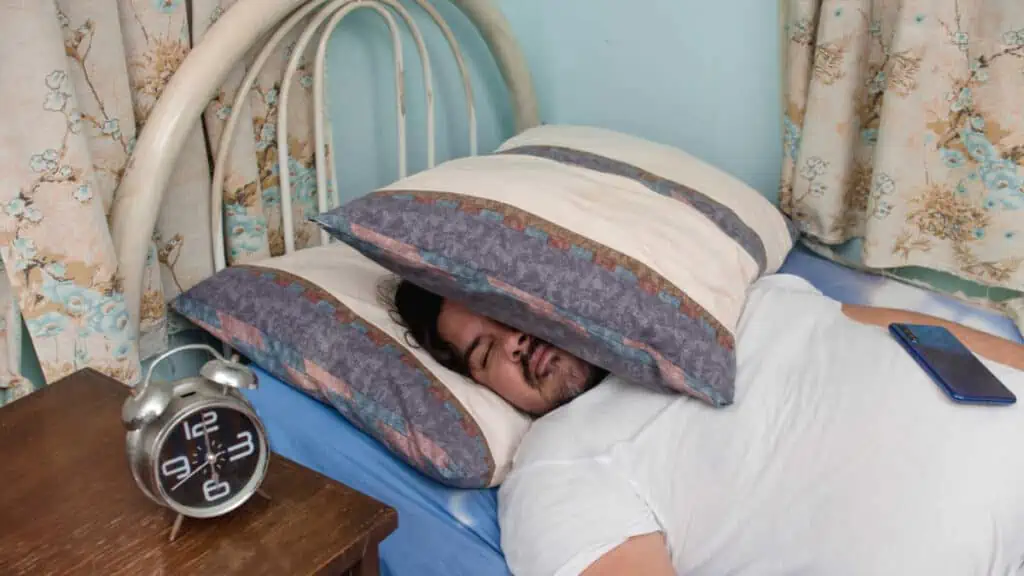
I’ve never been able to fall asleep while on my back no matter how much melatonin or sleep medication I’ve taken but I’ve still had sleep apnea episodes in hotel rooms or other places where I don’t have my pillow with me.
Another option is to purchase a mattress meant for big & heavy people as they offer support for your body type which may help remedy snoring if it’s caused by a sagging mattress putting your out of alignment (a heavy-duty bed frame may be in order too).
Another idea that can be helpful whether you have sleep apnea or not is to purchase something designed to keep your nasal passage open. I use BreatheRight Nasal Strips but there are tons of brands that you can find at your local store.
To use them you just peel the back off like you would a Band-Aid and put it over your nose. This allows you to get more air through your nose and is a great way to stop snoring. A few friends of mine have told me that they can be less effective while drinking, however.
If you aren’t interested in continually purchasing nasal strips, there are mouth guards or plastic devices that you can insert into your nostrils. These work in the same way as the BreatheRight strips but only require a one-time purchase instead of a monthly one. They work pretty well but I can tell you from firsthand experience that it’ll probably take you a while to get used to sleeping with something in your nose.
Oh and don’t forget to wash them.
Final Thoughts
To sum up, yes, according to scientific and medical research, fat people do tend to snore more than others. Not only can it be annoying to the ones we love or our neighbors on the other side of the hotel or apartment wall but it can also affect your long-term health by putting you at risk for multiple diseases or cancers.
If you think that you might be a snorer, I highly recommend getting it checked out. Even if you live alone in a cabin in the middle of the woods and don’t have any neighbors in a two-mile radius, it’s still in your best interest to talk to a doctor or at least try out the tips listed above as they could literally save your life.
If you do live alone and want to find out if you have a snoring problem, you don’t have to ask someone to spend the night at your place to find out. Unless it’s a close friend, the other person would probably consider it the worst pickup line of all time! An easier way is to get a tape recorder or even use your phone or computer to record the audio in your room. About 30 or 45 minutes should be enough.
Good luck and sweet dreams!

